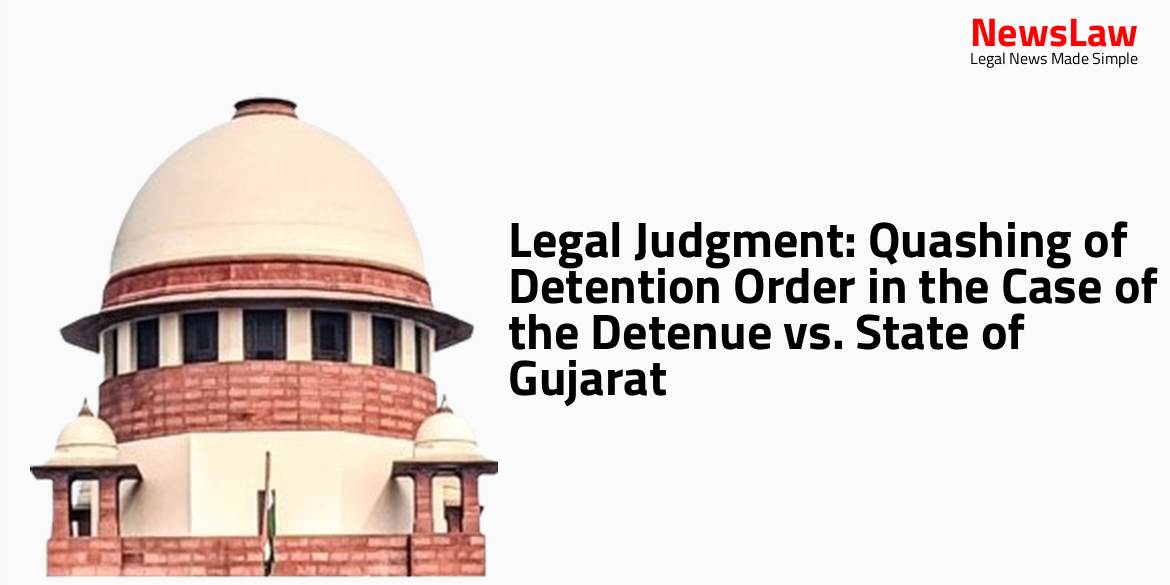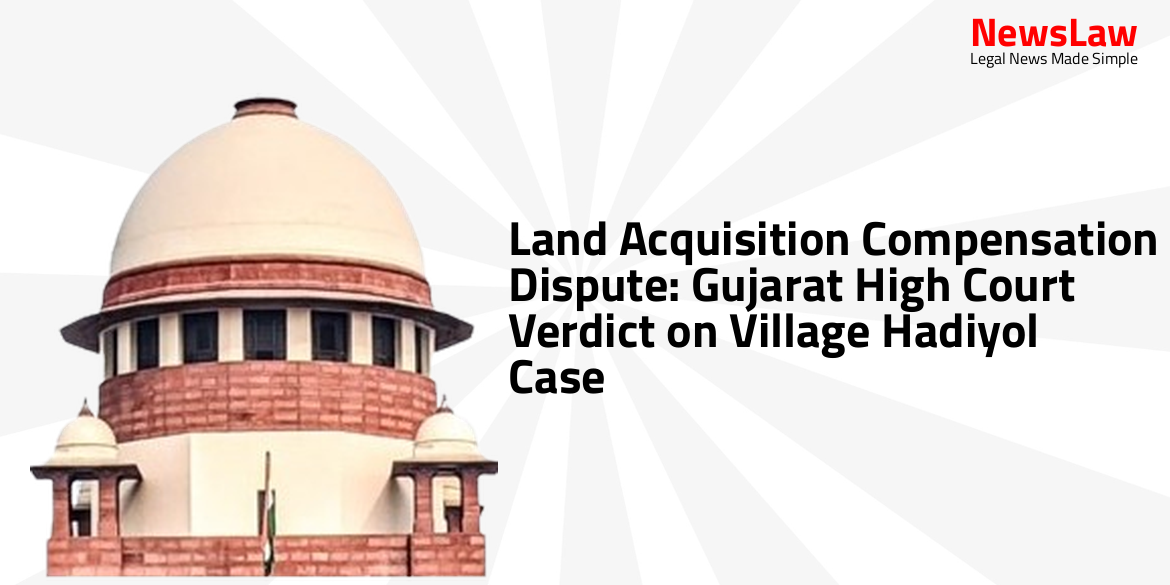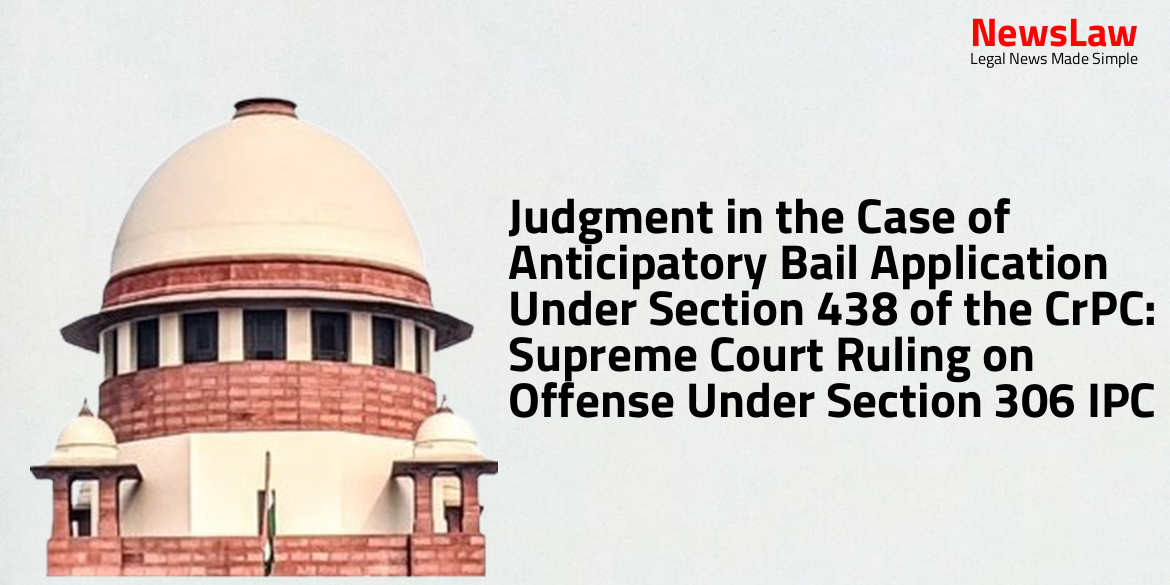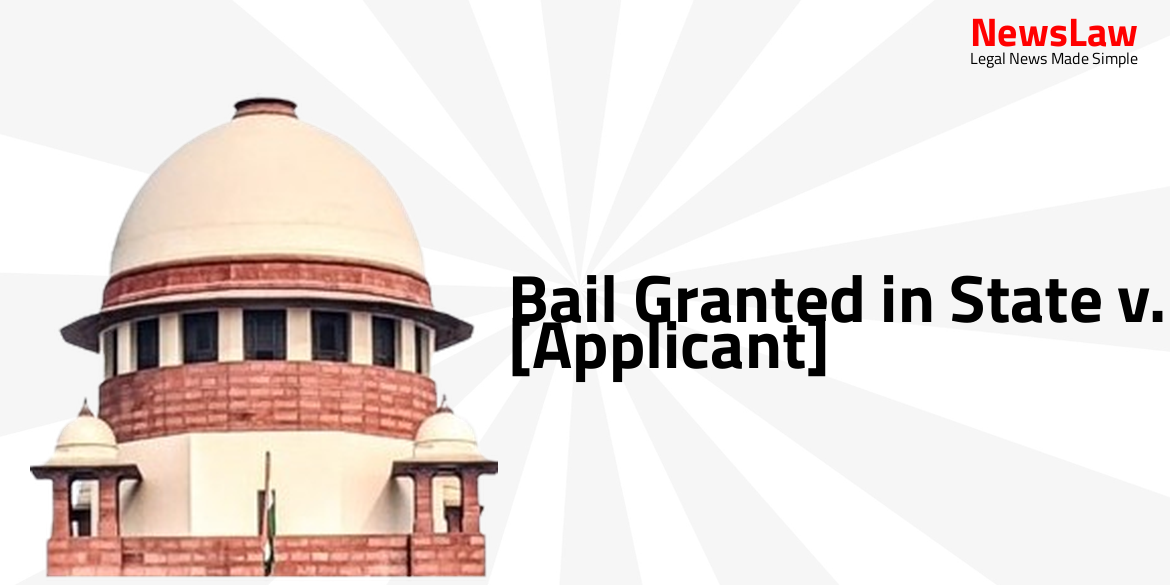In a significant legal development, the Gujarat High Court has delivered a judgment quashing a detention order in the case involving the Detenue against the State of Gujarat. The court carefully examined the petitioner’s arguments challenging the legality and validity of the order, focusing on the impact on ‘public order’ as defined by the Act of 1985. This ruling provides clarity on the requirements for preventive detention under the law, emphasizing the importance of distinguishing between ‘law and order’ and ‘public order’ issues. #LegalJustice #HighCourt #DetentionOrder #Judgment #Gujarat
Facts
- The Court examined the arguments presented by Petitioner Original Name regarding the legality and validity of the order in question.
- Petitioner Original Name challenged the order on the grounds of procedural irregularities.
- The Court considered the petitioner’s contentions seriously and analyzed the legal aspects of the order.
- The validity of the order was questioned by the petitioner, leading to a detailed evaluation by the Court.
- The order under scrutiny was reviewed in light of the laws and regulations applicable to such cases.
- The petitioner’s plea against the legality of the order was given due diligence by the Court before reaching a decision.
Issue
- The issue at hand is whether the order of detention passed by the Detaining Authority under the Act of 1985 is legally sustainable.
- The parties’ submissions and facts of the case have been considered in determining this issue.
Arguments
- Learned advocate for the detenue argues that the grounds of detention have no connection to ‘public order’ but are purely a matter of ‘law and order’.
- Detenue’s alleged offences do not impact public order as defined in Section 3(4) of the Act.
- Detenue’s activities are seen as prejudicial only to ‘law and order’, not ‘public order’.
- State Counsel argues that the detenue is a habitual offender with activities affecting society at large.
- Detaining Authority’s order aims to prevent detenue from acting in a way prejudicial to ‘public order’ in Vadodara.
Analysis
- The petitioner was granted bail in all mentioned offenses.
- The petitioner is considered a bootlegger, however, this alone does not justify detention.
- Reference to two criminal cases was made in the grounds of detention.
- The detenue’s activities as a ‘dangerous person’ do not directly impact public order.
- Failure to substantiate that the detenue’s anti-social activities affect public order.
- The alleged offenses may lead to punishment for the petitioner but do not impact public order.
- Witnesses have alleged incidents of beating by the petitioner.
- The order led to the petitioner being in jail.
- The distinction between ‘law and order’ and ‘public order’ was clearly explained.
- Acts of assault or injury to specific persons do not necessarily lead to public disorder.
- Contravention of any law affects order but to affect public order, it must affect the community or the public at large.
- Two criminal cases were wrongly used to justify that activities were prejudicial to the maintenance of public order.
- Offences in the cases mentioned did not have any bearing on the maintenance of public order.
- Differentiation was made between serious forms of disorder affecting the community versus minor breaches of peace primarily injuring specific individuals.
- Mere disturbance of law and order leading to disorder is not sufficient for action under the Preventive Detention Act, while a disturbance affecting public order falls within the Act’s scope.
- Individuals cannot be preventively detained under the Act unless their activities as a bootlegger have an adverse or likely adverse effect on the maintenance of public order.
- This provision is outlined in sub-section (4) of section 3 of the Act.
- The offences alleged against the petitioner and the allegations made by witnesses were considered.
- The alleged offences did not create any feeling of insecurity, panic, or terror among the public.
- There is no evidence to suggest that the activities of the petitioner affected or are likely to affect the maintenance of public order.
- The subjective satisfaction of the detaining authority is not considered legal, valid, or in accordance with the law.
- Therefore, the order of detention cannot be upheld.
Decision
- The detenue is directed to be set at liberty forthwith, if he is not required in any other case.
- The petition stands allowed.
- Direct service is permitted.
- The order dated 30.12.2023 passed by the respondent authority is quashed.
- Rule is made absolute accordingly.
Case Title: ALLARAKHA @ IJJO RAFIQBHAI SHAIKH Vs. STATE OF GUJARAT
Case Number: R/SCA/825/2024



